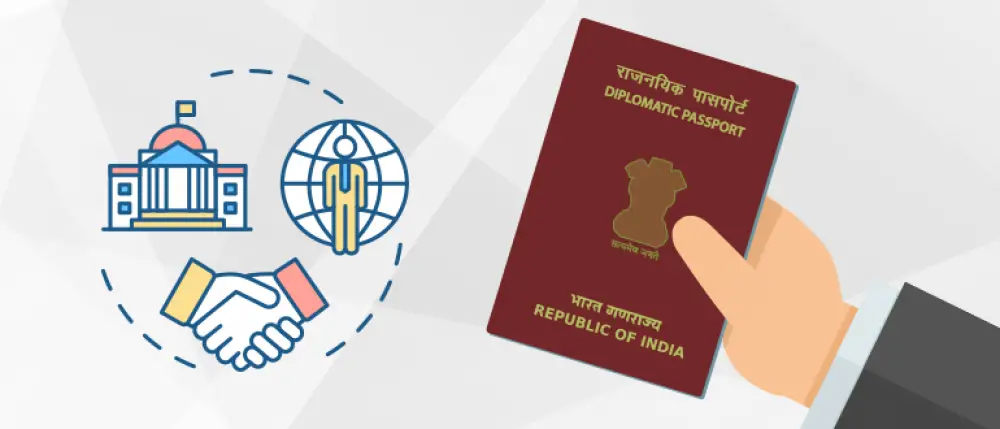Diplomatic Passport

- 03 May 2024
Why is it in the News?
After allegations of sexual abuse by Janata Dal (Secular) MP Prajwal Revanna came to light, the politician fled to Germany on a diplomatic passport.
What is a Diplomatic Passport?
- Diplomatic passports are issued to people holding diplomatic status or deputed by the Government of India for official duty abroad.
- Unlike normal passports, which are valid for 10 years and have a dark blue cover, diplomatic passports are valid for five years or less and have maroon covers.
- Diplomatic passports, also known as 'Type D' passports.
- A diplomatic passport has 28 pages.
- Holders of such passports are entitled to certain privileges and immunities as per international law, including immunity from arrest, detention, and certain legal proceedings in the host country.
Issuing Authority:
- The Ministry of External Affairs’s (MEA) Consular, Passport & Visa Division issues diplomatic passports (‘Type D’ passports) to people falling in broadly five categories:
- Those with diplomatic status;
- Government-appointed individuals travelling abroad for official business;
- Officers working under the branches A and B of the Indian Foreign Service (IFS), normally at the rank of Joint Secretary and above; and
- Relatives and immediate family of officers employed in IFS and MEA.
- Select individuals who are authorised to undertake official travel on behalf of the government”.
- The MEA issues visa notes to government officials going abroad for an official assignment or visit.
What are the Benefits of Having a Diplomatic Passport?
- Official identification: The diplomatic passport serves as an official identification document for individuals representing the Indian government on diplomatic missions.
- It helps in establishing their identity and official status.
- Diplomatic immunity: Diplomatic passport holders are typically entitled to certain privileges and immunities as per international law.
- This includes immunity from arrest, detention, and certain legal proceedings in the host country, safeguarding their ability to perform official duties without hindrance.
- Visa facilitation: Diplomatic passports often enjoy certain privileges when it comes to visa facilitation.
- Many countries offer expedited visa processing or waive visa requirements altogether for diplomatic passport holders, simplifying travel arrangements for official purposes.
- Access to diplomatic channels: The diplomatic passport grants access to diplomatic channels and services provided by Indian embassies, consulates, and other diplomatic missions worldwide.
- This includes assistance with consular services, protection, and support while abroad.
- Priority services: Diplomatic passport holders may receive priority services at airports and during immigration procedures.
- This can include dedicated immigration counters or expedited security and customs clearance, saving time during travel.
- Official representation: The diplomatic passport signifies the official representation of the Indian government and confers a sense of authority and credibility while dealing with international counterparts, foreign officials, and diplomatic communities.
Can Diplomatic Passports be Revoked?
- According to The Passports Act, 1967, the passport authority may cancel a passport or travel document, with the previous approval of the Central government.
- The passport authority can impound or revoke a passport if the authority believes that:
- The passport holder or travel document is in wrongful possession
- If the passport was obtained by the suppression of material information or based on wrong information provided by the individual
- If it is brought to the notice of the passport authority that the individual has been issued a court order prohibiting his departure from India or has been summoned by the court.
- A diplomatic passport can be revoked upon orders from a court during proceedings with respect to an offence allegedly carried out by the passport holder before a criminal court.
